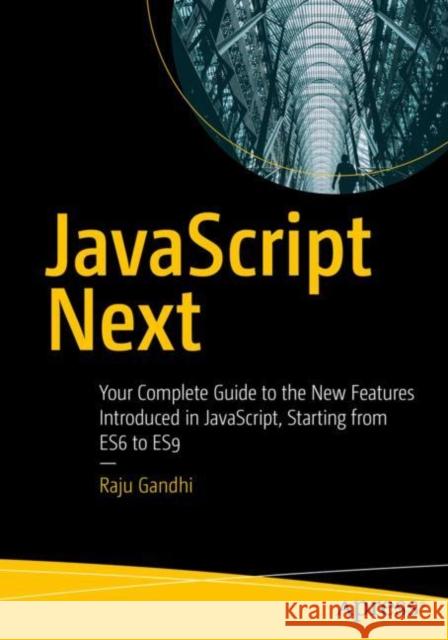JavaScript Next: Your Complete Guide to the New Features Introduced in Javascript, Starting from Es6 to Es9 » książka
topmenu
JavaScript Next: Your Complete Guide to the New Features Introduced in Javascript, Starting from Es6 to Es9
ISBN-13: 9781484253939 / Angielski / Miękka / 2019 / 241 str.
JavaScript Next: Your Complete Guide to the New Features Introduced in Javascript, Starting from Es6 to Es9
ISBN-13: 9781484253939 / Angielski / Miękka / 2019 / 241 str.
cena 216,52
(netto: 206,21 VAT: 5%)
Najniższa cena z 30 dni: 206,13
(netto: 206,21 VAT: 5%)
Najniższa cena z 30 dni: 206,13
Termin realizacji zamówienia:
ok. 16-18 dni roboczych.
ok. 16-18 dni roboczych.
Darmowa dostawa!
Kategorie:
Kategorie BISAC:
Wydawca:
Apress
Język:
Angielski
ISBN-13:
9781484253939
Rok wydania:
2019
Ilość stron:
241
Waga:
0.46 kg
Wymiary:
25.4 x 17.78 x 1.4
Oprawa:
Miękka
Wolumenów:
01
Dodatkowe informacje:
Wydanie ilustrowane











